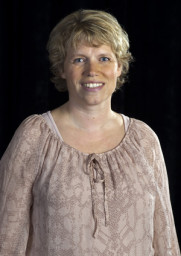The IMPULS-2020 project DIGIREAL (BUas, 2021) aims to significantly strengthen BUAS’ Research and Development (R&D) on Digital Realities for the benefit of innovation in our sectoral industries. The project will furthermore help BUas to position itself in the emerging innovation ecosystems on Human Interaction, AI and Interactive Technologies. The pandemic has had a tremendous negative impact on BUas industrial sectors of research: Tourism, Leisure and Events, Hospitality and Facility, Built Environment and Logistics. Our partner industries are in great need of innovative responses to the crises. Data, AI combined with Interactive and Immersive Technologies (Games, VR/AR) can provide a partial solution, in line with the key-enabling technologies of the Smart Industry agenda. DIGIREAL builds upon our well-established expertise and capacity in entertainment and serious games and digital media (VR/AR). It furthermore strengthens our initial plans to venture into Data and Applied AI. Digital Realities offer great opportunities for sectoral industry research and innovation, such as experience measurement in Leisure and Hospitality, data-driven decision-making for (sustainable) tourism, geo-data simulations for Logistics and Digital Twins for Spatial Planning. Although BUas already has successful R&D projects in these areas, the synergy can and should significantly be improved. We propose a coherent one-year Impuls funded package to develop (in 2021): 1. A multi-year R&D program on Digital Realities, that leads to, 2. Strategic R&D proposals, in particular a SPRONG/sleuteltechnologie proposal; 3. Partnerships in the regional and national innovation ecosystem, in particular Mind Labs and Data Development Lab (DDL); 4. A shared Digital Realities Lab infrastructure, in particular hardware/software/peopleware for Augmented and Mixed Reality; 5. Leadership, support and operational capacity to achieve and support the above. The proposal presents a work program and management structure, with external partners in an advisory role.
Program Director MSc Leisure and Tourism Studies, Senior Researcher and Lecturer
